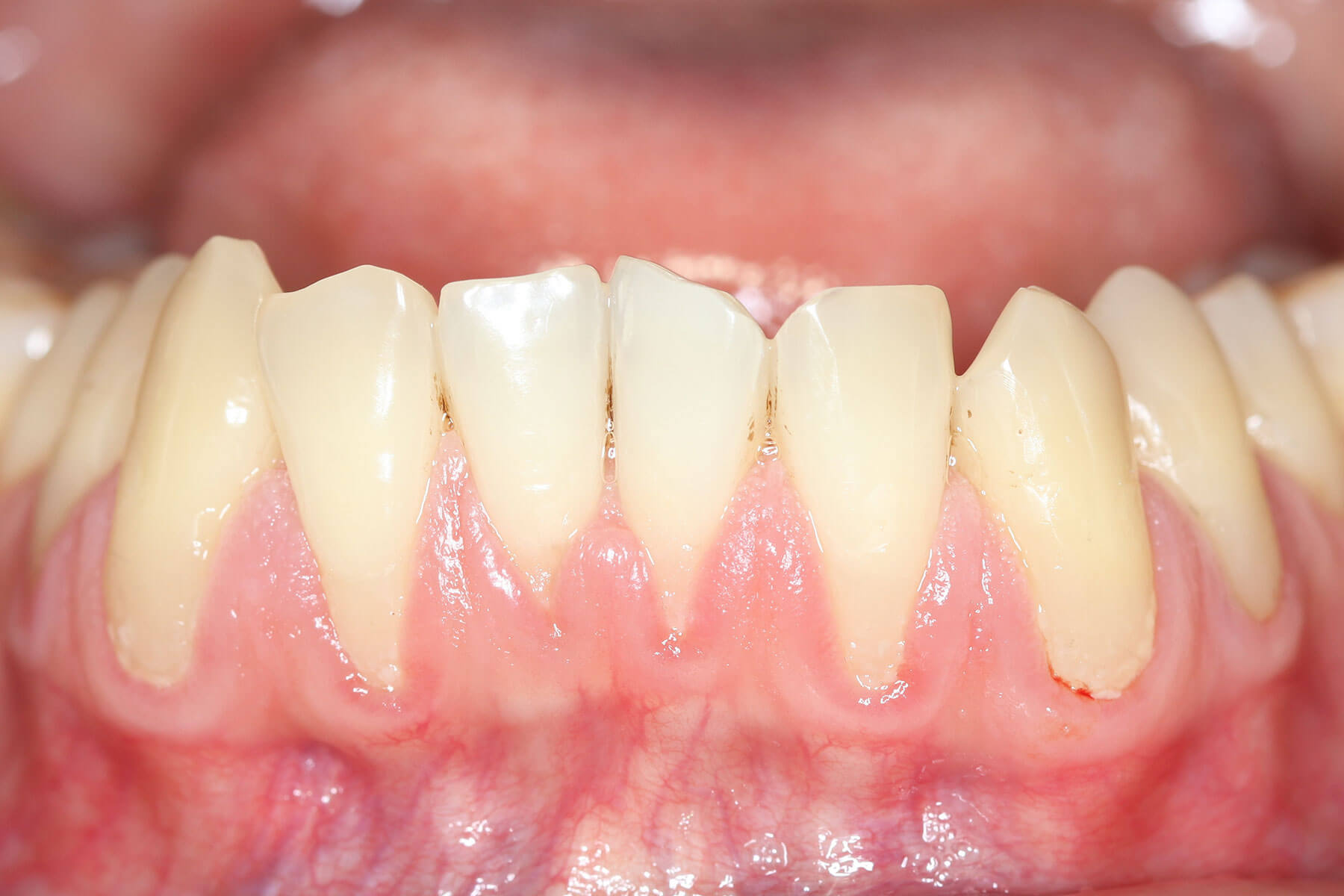Dental issues such as receding gums can impact your daily life. Fortunately, you can take steps to prevent the progression of this condition and maintain healthy gums. At Supreme Dentistry, our dental services in Houston, Texas, can help you achieve optimal oral health and provide tips on caring for your gums.
We can help you understand the types of foods to avoid with receding gums and how to make healthier choices for your oral health. Don’t hesitate to call us at 844.966.2333 to schedule an appointment so that we can make a plan of action to help you maintain your health.
Understanding Receding Gums
Receding gums, medically known as gingival recession, is a condition where the margin of the gum tissue surrounding the teeth wears away or pulls back, exposing more of the tooth or the tooth’s root. This process isn’t overnight. It happens gradually, making it easy to overlook until noticeable symptoms appear.
Here are some prominent symptoms to look out for:
- Tooth sensitivity – Increased sensitivity to hot, cold, or sweet foods and beverages
- Longer teeth – Your teeth may appear longer than normal as more of their structure gets exposed
- Inflamed gums – The gums might seem red, swollen, and tender to the touch
- Bleeding after brushing or flossing– If your gums bleed after routine dental care, it might indicate a problem
- Bad breath – Persistent bad breath or a bad taste in your mouth could also be a sign
Early detection is vital to mitigating severe outcomes associated with receding gums. It’s important to visit your dentist regularly and notice these symptoms.
The Role of Diet in Gum Health
Diet plays a crucial role in maintaining healthy gums. What we consume can either alleviate or aggravate conditions like receding gums. Certain foods, rich in sugar and harmful carbohydrates, can foster the growth of harmful bacteria in your mouth. These bacteria produce toxins that irritate your gums, leading to inflammation and, over time, causing your gums to recede.
Identifying and avoiding these culprits from your diet can significantly improve gum health. This is where understanding the types of foods to avoid with receding gums becomes incredibly important, as it can help prevent further damage and promote overall oral health.
15 Foods to Avoid with Receding Gums
When it comes to managing receding gums, your diet can play a significant role. Here is a list of 15 foods to avoid with receding gums:
- Sugary drinks
- Hard candies
- Coffee and tea
- Alcoholic beverages
- Refined carbohydrates
- Pickles
- Tomatoes
- Citrus fruits
- Sticky and dried fruits
- Garlic and onions
- Potato chips
- Popcorn
- Spicy food
- Ice
- Sports drinks
While avoiding these foods is advisable, following a balanced, nutritious diet and maintaining good oral hygiene practices are equally important.
Food for Inflamed Gums
Incorporating certain foods into your diet can help alleviate discomfort and promote healing when dealing with inflamed gums. Foods rich in vitamin C, such as oranges, strawberries, and bell peppers, can boost your immune system and speed up the healing process. Crunchy fruits and vegetables, like carrots, celery, and apples, are nutritious and work like a natural toothbrush, helping to clean teeth and massage your gums.
Foods high in omega-3 fatty acids, like fish and flaxseeds, are known for their anti-inflammatory properties and can help soothe your inflamed gums. Additionally, drinking plenty of water helps rinse away food particles and bacteria, promoting oral health. Keep in mind that while diet is significant, it should serve as a complement, not a substitute, to proper oral hygiene practices and regular dental check-ups.
Foods to Avoid with Gingivitis
Gingivitis, a common gum condition marked by inflammation of the gums, can be exacerbated by the foods we consume. Especially harmful are foods high in sugar, such as candies, pastries, and sodas, that stimulate the growth of plaque-causing bacteria. Likewise, starchy foods like bread, pasta, and potatoes can break down into simple sugars and contribute to this problem.
Consuming acidic foods and beverages, such as citrus fruits, tomatoes, and coffee, can further irritate already inflamed gums. Additionally, alcoholic drinks have a tendency to dehydrate the mouth, disrupting the bacterial balance and rendering gums more vulnerable to gingivitis. Given these factors, it is evident that making dietary adjustments plays a crucial role in addressing this oral health concern.
Call Supreme Dentistry to Schedule an Appointment with Us for Dental Services in Houston, Texas
Our team of experienced dentists at Supreme Dentistry provides comprehensive dental services to improve oral health. If you’re concerned about receding gums or any other dental issues, we are here to help. Our friendly and approachable tone will make you feel comfortable as we work toward achieving optimal gum health together. Don’t wait until it’s too late; schedule an appointment with us today by calling 844.966.2333 or contacting us online, and we can answer any of your concerns or questions, especially about the types of foods to avoid with receding gums.







